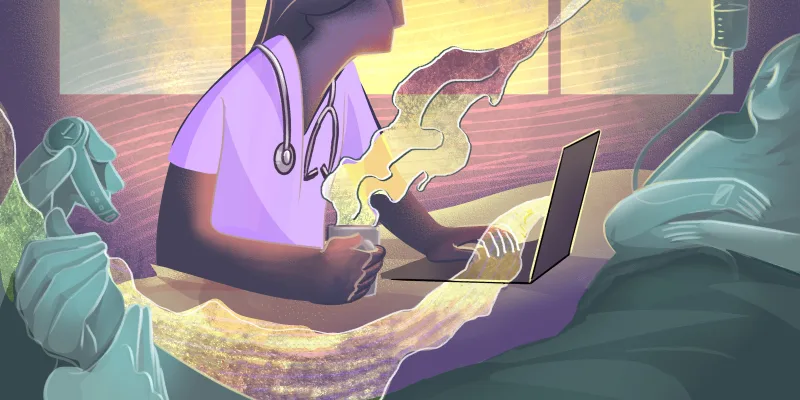
The natural state of human beings is to live together and function as organized groups. The beginnings of communities have primeval origins; evolutionarily, societies which worked together were more productive, efficient and, probably most importantly, safer. Thousands of years of evolution have ingrained these behaviors as part of our genetic constitution and developmental process. Social integration and acceptance thus are an integral part of basic human behavior and provide a sense of protection, pleasure, and purpose in life.
Changes in society over the last few decades have led to increased isolation. There has been a rise in single-person households in the last 50 years. It is most prevalent in large cities where it is around 40%. The average number of confidants or the size of an American’s social network reduced by more than one-third from 1985 to 2009. The health service company Cigna surveyed more than 20,000 adult Americans using the UCLA Loneliness Scale and results were published in 2018. Notably, nearly half of respondents reported always feeling alone (46%) or left out (47%) and those aged 18-22 were the loneliest age group and claimed to be in worse health than older age groups. Furthermore, the survey results suggested that people who felt lonelier were more likely to have poor sleep and be less physically active. Americans who lived with others were less likely to report feeling lonely, the exception to this being single parents who only lived with their children. The survey results also showed that people who engage in meaningful interactions with others had lower loneliness scores on the scale and perceived that they were in better overall health.
Studies have consistently demonstrated a link between loneliness and health problems such as cardiovascular disease, substance abuse and mood disorders. A 2010 meta-analysis of 148 prospective studies with 308,849 participants showed that influence of social relationships on risk of mortality is comparable to well established risk factors for mortality such as smoking and alcohol consumption. These findings were confirmed in a follow-up meta-analysis in 2015 that included 70 studies with 3.4 million participants followed over an average of seven years.
As such, loneliness has been identified as a social determinant of health and is considered by many to be epidemic in proportion in developed countries. The case for this has been made so convincingly that, when surveyed, almost one-fifth of U.S. health care leaders have identified social isolation as something they plan to address in the next 12 months.
This acute COVID-19 crisis that is leading to forced quarantines and social distancing is likely to further exacerbate the loneliness epidemic. Hopefully this increased isolation will not last more than a few weeks, maybe months, and that the effect on chronic medical illness will be minor. However, for those suffering with mental health issues, could this further isolation, in conjunction with rising societal anxiety and fear of potentially devastating financial impact, be what pushes our patients to suicide?
A particularly vulnerable population is those with substance use disorders. While essential to limit the spread of COVID-19, social isolation poses unique challenges for this group since connection and social support are important aspects of achieving and maintaining sobriety. As mental health clinicians, we need to proactively engage with our patients to help develop a plan which will strengthen their social support system. This may mean contacting their network of people virtually when our patients are facing self-isolation or quarantine. We need to identify high risk patients and continue to provide treatment via telepsychiatry. This is especially necessary to prevent relapse of their mood and substance use disorders and minimize the risk of suicide.
We are ethically required to provide an atmosphere of trust, safety and social inclusion by resources such as telehealth, video conferencing and other online forums to ameliorate the short and long-term impact of COVID-19 isolation. As physicians, we have a duty to make sure we only communicate the most accurate information available to our patients. This may be challenging in these desperate times, because we, as psychiatrists, also have to find ways of addressing underlying fears of our patients, our coworkers and families. Providing avenues which are easily accessible, are supportive, and maintain standards of care are essential and should be implemented as early as possible to avoid negative outcomes in regards to both COVID-19 and mental health.
There is also a significant risk that once circumstances improve there will be a surge in the number of patients who will need a higher level of care for their mental health. Our actions and preparedness as mental health clinicians may define the trajectory of mental health potentially for years to come. While unfortunately we are forced to be reactive at this time, hopefully what is born out of this crisis will translate into proactive measures for future crises.
Let this short piece serve as a call to action, as society finds ways to work from home, we as mental health professionals need to lead the charge to use this same technology to create platforms for social interaction. If we do not find ways to address the mental health burden of the COVID-19 pandemic, who will? We are all part of the mental health community and need to continue to function as an organized group, as has been the natural state of human beings for thousands of years.
Image: freemind-production / shutterstock
Click here to see more perspectives on COVID-19 from the Doximity network.
Click here for up-to-date news about COVID-19 on Doximity.




